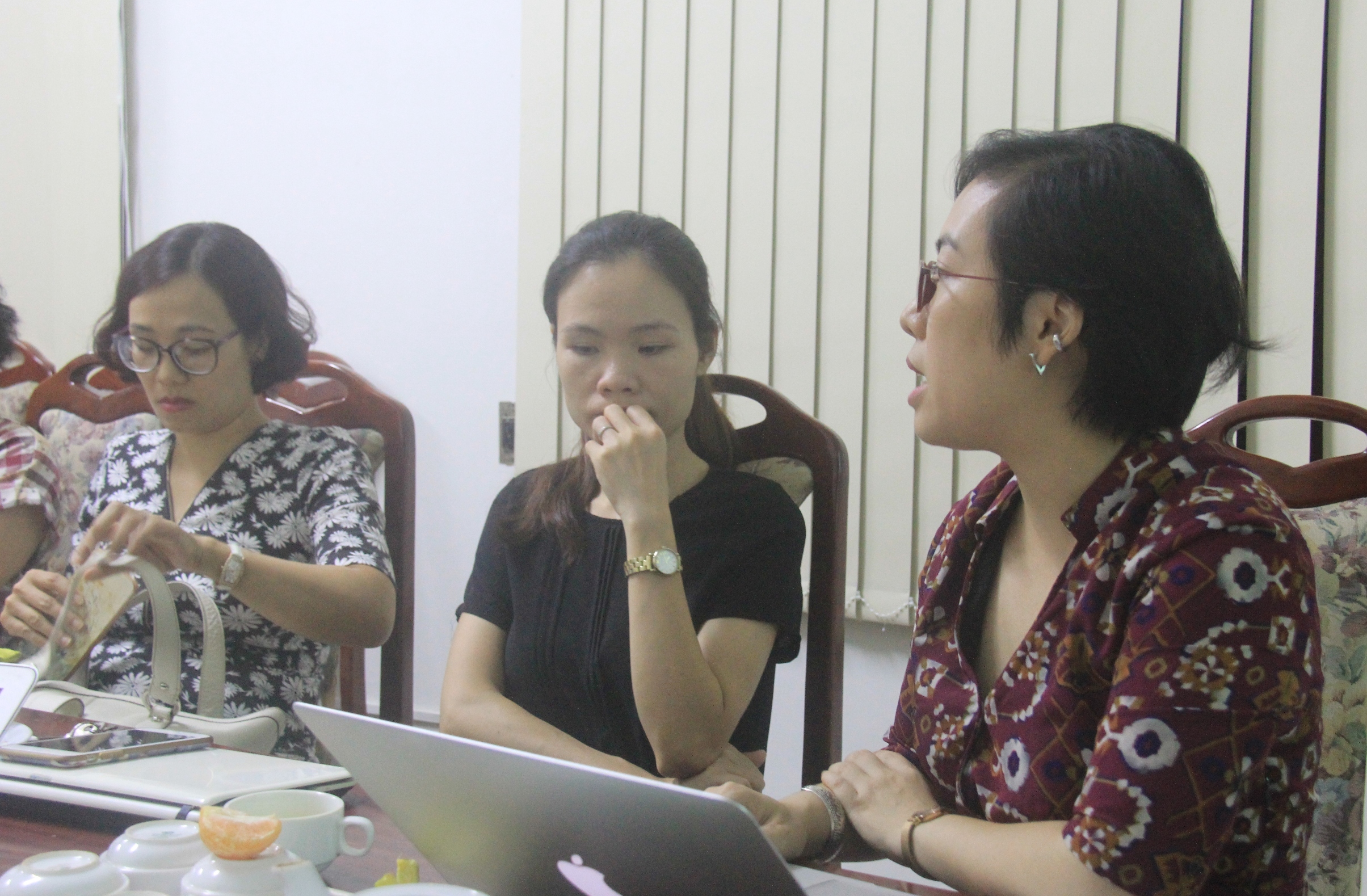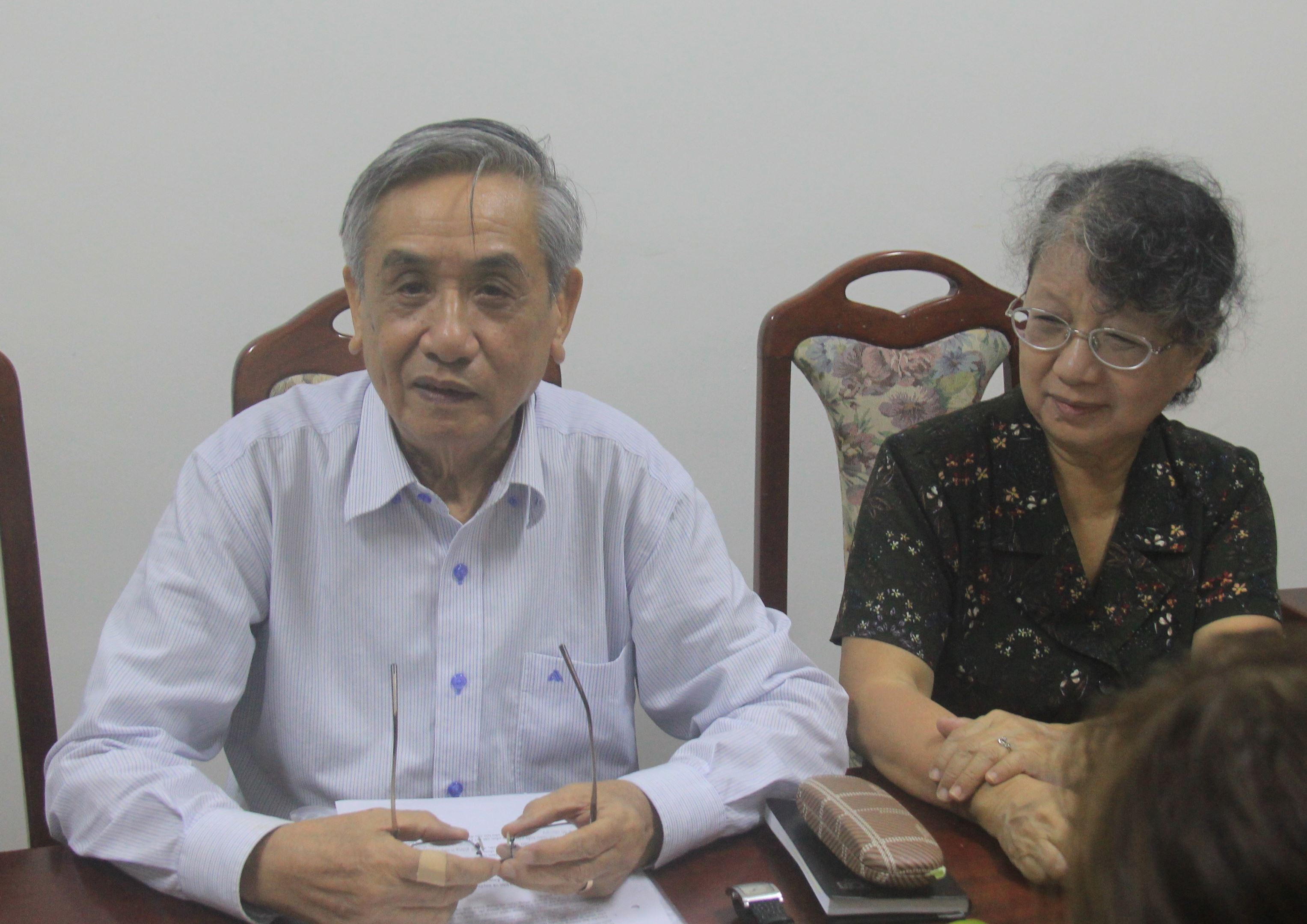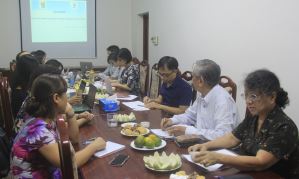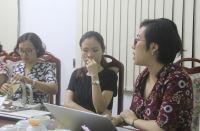
Focus on teaching thinking skills and methods.
According to Professor Vu Duong Ninh (Chairman of the University's Retired Faculty Association), university lecturers need to pay special attention to logical thinking in their lectures. This not only helps students understand the material but also gradually transforms the teacher's thinking into the students'. For a lecture to be logical and coherent, the lecturer must have a very firm grasp of the subject matter being conveyed.
"In my opinion, critical thinking skills, expressive abilities, and the ability to connect lectures, teacher-student relationships, and the connection between different subjects are fundamental skills that a good teacher must possess," Professor Vu Duong Ninh emphasized.
According to Professor Ninh, the lecturer's task, in addition to imparting knowledge to students, is to encourage deeper learning and help students develop the ability to learn and research independently. This is completely different from teaching at the secondary school level.

Professor Vu Duong Ninh (Chairman of the School's Retired Teachers Association)
Analyzing the differences between a research university and a regular university, Dr. Lam Minh Chau (Deputy Head of the Anthropology Department) pointed out the core objectives that must be achieved in the teaching process to suit the nature of a research university. With the goal of creating new knowledge, a research university must aim to train individuals capable of generating new knowledge – the driving force for social development. Meanwhile, regular universities only need to produce individuals with knowledge and standardized professional skills. To create new knowledge, these individuals must grasp the latest trends and viewpoints, considering classical knowledge or viewpoints only as a starting point for creativity and discovery.
Therefore, in addition to teaching students the most up-to-date knowledge, instructors must cultivate critical thinking skills in students and in fostering their own perspectives on every issue..Finally, it involves teaching research methods and problem-solving skills.
Dr. Lam Minh Chau also emphasized that only when lecturers are also serious and independent researchers can they possess high levels of creativity; thereby guiding, encouraging, and inspiring students to be creative and dare to do things differently.
Furthermore, assigning teaching responsibilities to subjects in a way that aligns with training objectives and the teaching capabilities of each group of lecturers is crucial for improving training quality. Dr. Lam Minh Chau cited the example of other countries, where leading professors with profound knowledge are often chosen to teach general subjects or to first-year students, rather than young lecturers. This is because leading professors are capable of conveying the most complex content in the simplest and most coherent way. General subjects, seemingly easy, actually require a very broad and deep foundation of knowledge from the instructors.
Professor Pham Quang Minh shared his insights on the three levels of analysis in international studies that researchers and lecturers must master: the international level, the national level, and the individual level. Among these, national-level analysis is currently weak because not many students understand the internal political, economic, and social situation of each country. And individual-level analysis is not widely studied, partly due to the Vietnamese culture and habits that do not prioritize individualism… Furthermore, mastering these three levels of analysis is challenging due to the complexity of international systems, the diversity of the national level, and the unpredictability of the individual level.
Active teaching
Delving deeper into teaching methods, the speakers unanimously agreed that traditional teaching methods such as rote memorization and one-way teacher-student interaction are no longer effective. Lecturers must be proactive, creative, and apply a variety of different methods.
Sharing the results of a survey of students' opinions on teaching activities, Dr. Nguyen Thi Thuy Trang (Deputy Head of the Faculty of International Studies) stated that students highly appreciate the teaching methods of lecturers and their ability to use modern teaching aids. However, students are still dissatisfied with the support they receive in developing critical thinking and logical reasoning skills. Students expect lecturers to further enhance their creativity in teaching; increase presentation and group work activities; increase the practical relevance of the subjects; and increase the time allocated for internships and field trips…
Professor Hoang Khac Nam (Head of the Department of International Studies) believes that there are many different teaching styles that lecturers can apply depending on the target audience. For example, the pedagogical method – combining lectures with practical activities – helps students immediately apply what they have just learned to real-world situations. This teaching style is suitable for undergraduate students and has a high level of interaction with learners. However, for postgraduate students, lecturers can apply the "talker" style – a highly presentation-oriented approach with a broader, more academic knowledge base.
Professor Hoang Khac Nam shared the criteria for becoming a good lecturer, which are: having a passion for the job; being enthusiastic and inspiring to students; designing logical and engaging lectures; focusing on interaction with learners and continuously adjusting teaching methods to suit classroom realities; promoting student initiative and independence in learning through various group discussions and seminars; accepting students' individuality and differences…

Dr. Tran Diep Thanh (Faculty of International Studies) discussed the necessity of seminar activities in teaching. Research shows that if students only read materials, they only remember about 10% of the knowledge; if they only listen, they remember about 20%; combining listening and watching in learning, the retention rate is 50%. However, if students present their research results themselves, the retention rate increases to 70%. If students know how to collaborate and present their ideas independently, the retention rate can reach 90%. This is useful information for lecturers.
Approaching teaching from the learner's perspective, Associate Professor Dr. Nguyen Thi Thanh Thuy (Head of the Department of American Studies, Faculty of International Studies) believes that Vietnamese students still have a fear of strict professors and are unwilling to engage in academic dialogue. They often compare and choose professors who are easygoing and give high grades. Not to mention, plagiarism among students is not uncommon. Therefore, practical analysis and surveys of students' needs, abilities, and learning psychology are crucial to make appropriate changes in teaching methods, helping to achieve the set goals of the learning process.
Boost EMI
From a unique perspective, Dr. Le Lena (Faculty of International Studies) presented a discussion on the current state of teaching specialized subjects in English at the Faculty. EMI is understood as the use of English as the primary tool in learning and teaching at educational institutions – especially when learners and teachers do not speak English as their native language. This is a clear and increasingly common trend in education today, especially in the context of strong international integration, the increasing number of students studying abroad, and foreign universities increasingly seeking students from outside their own countries to enhance their image and increase funding. EMI brings many benefits to learners, teachers, educational institutions, and the overall development of the education and training sector in each country.

Dr. Le Lena (Faculty of International Studies) presented a paper at the seminar on the current state of teaching specialized subjects in English at the Faculty.
The presentation highlighted the advantages of teaching EMI at the Faculty today, such as: the Faculty's specialized lecturers have good foreign language skills; the Faculty has many visiting lecturers who are foreigners; there are increasingly more international academic activities; the Faculty's focus on improving foreign language proficiency for students; and the University's internationalization strategy for its teaching programs…
In addition, the implementation of EMI at the Faculty also faces limitations such as: lecturers have not been trained to conduct EMI classes; current EMI classes are built through the efforts of lecturers rather than a combination of specialized lecturers and English lecturers; students' foreign language proficiency is uneven; there is a lack of truly effective support for both lecturers and students participating in EMI classes…
Dr. Le Lena also suggested building a flipped classroom when teaching EMI – the opposite of the current trend in conventional classrooms. Accordingly, the process of students reading and understanding the material takes place outside the classroom and is a self-learning process. Students participating in the flipped classroom model will work with the lecture material beforehand by reading materials, summarizing materials, listening to lectures provided in advance from videos, PowerPoint slides, online information, etc. Class time is mainly dedicated to answering questions, discussing, understanding in depth, and expanding on the issues under discussion. The lecturer only plays the role of facilitating discussion and answering questions. This learning method requires the proactive participation of both teacher and students and, if successful, will yield high teaching effectiveness.
Author:Thanh Ha
Newer news
Older news